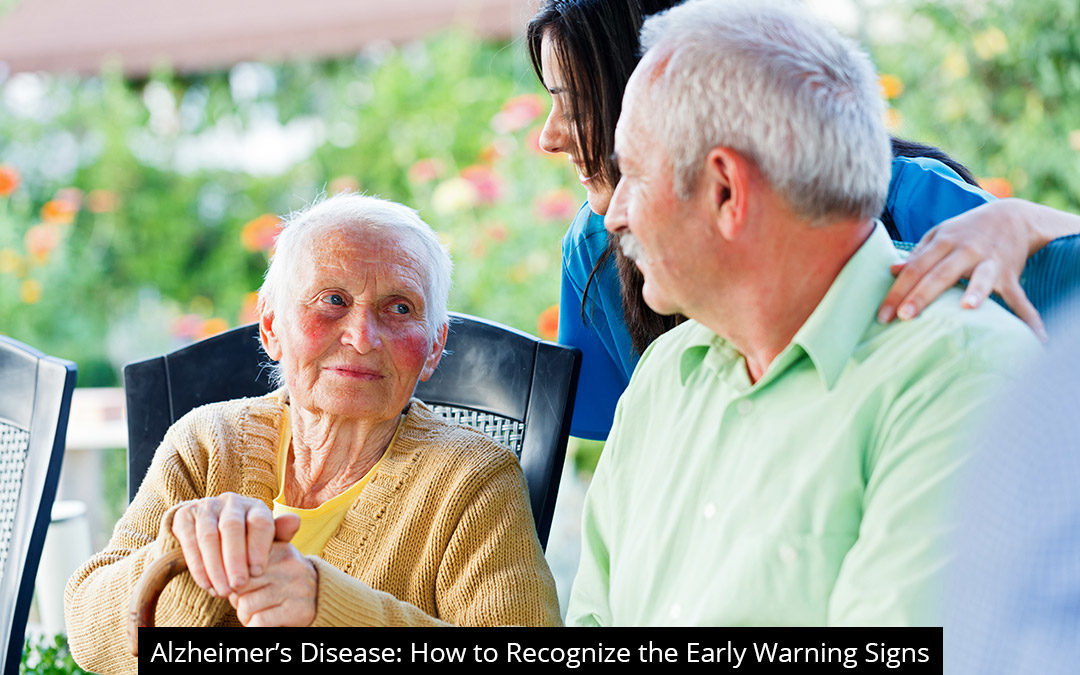Alzheimer’s is a progressive neurodegenerative disease that damages and destroys brain cells resulting in the deterioration of memory and cognitive function over time. While there is no cure for Alzheimer’s, detecting the presence of the disease early helps minimize damage and optimize management strategies.
Stages Of Alzheimer’s Disease
There are typically three stages associated with the progression of Alzheimer’s, broken down as follows:
- Mild (Early Stage)
- Moderate (Middle Stage)
- Severe (Late Stage)
Mild (Early Stage) Alzheimer’s Symptoms
During this initial stage, the symptoms of Alzheimer’s may be difficult to recognize if you don’t know what you are looking for. Individuals at this early stage of the disease may continue to lead a completely independent lifestyle, including driving without incident and participating in regular social activities. However, during this mild stage of Alzheimer’s friends and family may begin to notice something is a little off, and the individual affected might start coming to the realization that something is wrong.
Typical mild stage Alzheimer’s symptoms to be on the lookout for include:
- Slight memory loss
- Difficulty recalling familiar names or words
- Poor judgement
- Indecisiveness or making poor decisions
- Taking longer or having trouble completing routine tasks
- Forgetting information just received, repeating questions
- Losing and misplacing things
- Difficulty planning and organizing
- Wandering or having trouble with directions
- Mild personality or mood changes
- May be quick to become irritated or aggressive
Recognizing the symptoms of Alzheimer’s at this early stage is advantageous to establishing effective treatment and management practices while the affected individual is still aware of what is happening.
Moderate (Middle Stage) Alzheimer’s Symptoms
The middle stage of Alzheimer’s is generally when symptoms become more pronounced and problematic. This stage of the disease is most often the longest and can last for several years. The quality of life during those years is directly related to the support and assistance the individual is receiving.
Symptoms of moderate stage Alzheimer’s often include:
- Noticeable memory loss and regular periods of confusion
- Inability to recall simple personal information like address, telephone number, or school attended
- Difficulty recognizing friends and family
- Serious problems grasping new concepts and learning new things
- Reduced attention span
- Diminished capacity for logic and critical thinking
- Inability to complete multi-step tasks
- Increased tendency to wander, especially at dusk (sundowning)
- Difficulty with language and numbers
- Hallucinations, delusions, paranoia
- Impulsive and inappropriate behaviour
- Outbursts of anger or vulgarity
- Undressing in public
- Increased anxiety and restlessness
- Repetitive movements, speech, behaviours
By the time Alzheimer’s reaches the moderate stage the affected individual will require support and assistance with daily activities. At this stage it is important to encourage independence by letting the person do the things they can still manage on their own.
Severe (Late Stage) Alzheimer’s Symptoms
Late stage Alzheimer’s marks the point where affected individuals are no longer able to carry on a simple conversation, respond to or make logical sense of their environment, or even control their movements. In the severe stage Alzheimer’s, patients are completely dependent on others for daily care.
Symptoms associated with severe stage Alzheimer’s include:
- Complete loss of communicative ability
- Loss of awareness of surroundings
- Weight loss
- Increased risk of infection and illness
- Difficulty walking, sitting up, swallowing
- Bowel and bladder incontinence
- Sleeping for prolonged periods
If you have a loved one experiencing symptoms of Alzheimer’s at any stage, it is never too late to seek assistance to help improve the quality of daily life.




